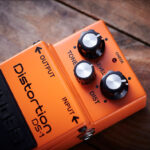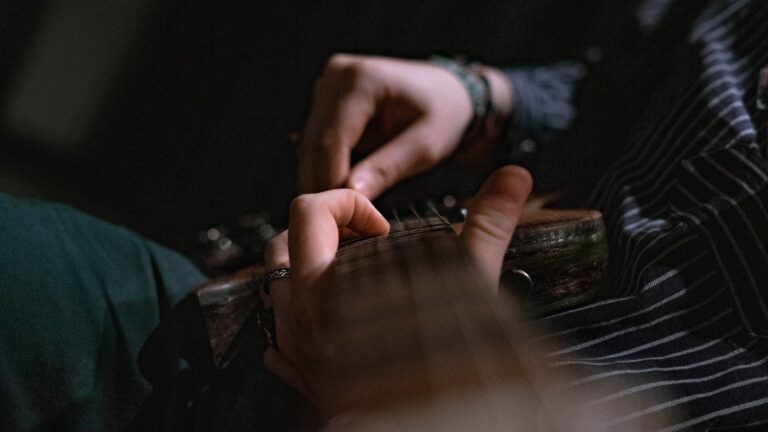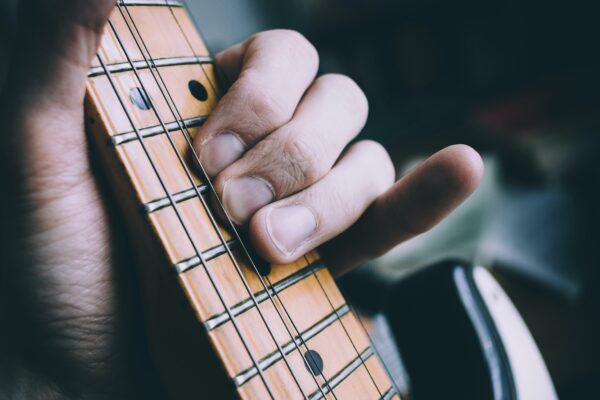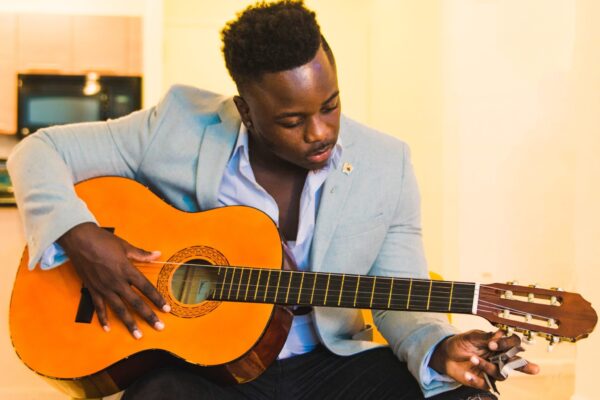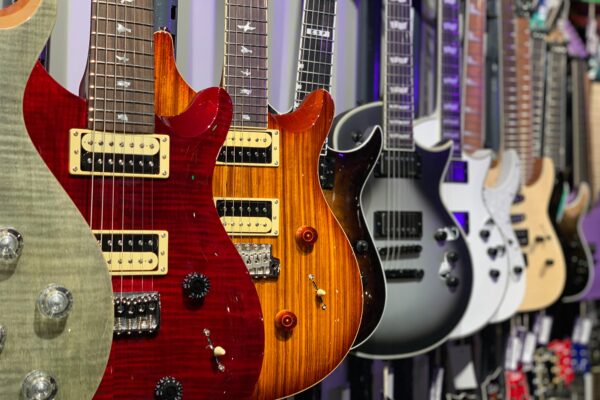Table of Contents
Guitar blisters are a common side effect of playing the guitar, and something that the majority of guitar players struggle with. They are caused by the friction of the strings against the fingers and can be very painful, and frustrating.
Blisters usually form on the tips of the fingers pressing the string, but they can also form on your thumb for fingerpicking.
In this guide, we will go over some of the most important steps to take in order to prevent guitar blisters, and we will also give you some advice on how to heal them.
Is it normal to get blisters from playing guitar?
It is absolutely normal for guitar players to have blisters on their fingertips. This is just the result of the constant friction between the strings and the soft skin. As you become more experienced, and your fingertips start developing guitar calluses, you won’t have to deal with guitar blisters at all.
Guitar blisters can be extremely uncomfortable, it is not usually a cause for concern, but there are ways of preventing and healing them. If you are experiencing guitar blisters the best approach is to stop playing for a few days, until the blisters go away. Usually, within a week your finger should be fine, and you can go back to practicing.
Is it OK to play guitar with a blister?
If you have guitar blisters, the best approach is to not play guitar for a few days. If you keep playing not only will it be painful and uncomfortable, but you will also create a wound, which will take a lot more time to heal. A wound will also prevent you from playing sometimes for up to 2 weeks.
You may want to continue to play, but if you have blisters in your fingers it is always a better approach to avoid playing.
Do guitar blisters turn into calluses guitar?
Yes, guitar blisters are the beginning of the formation of guitar calluses, when they show up that is when you want to avoid playing guitar for a few days. Give your fingers a few days to heal, and so that your skin has enough time to harden.
How to prevent guitar blisters
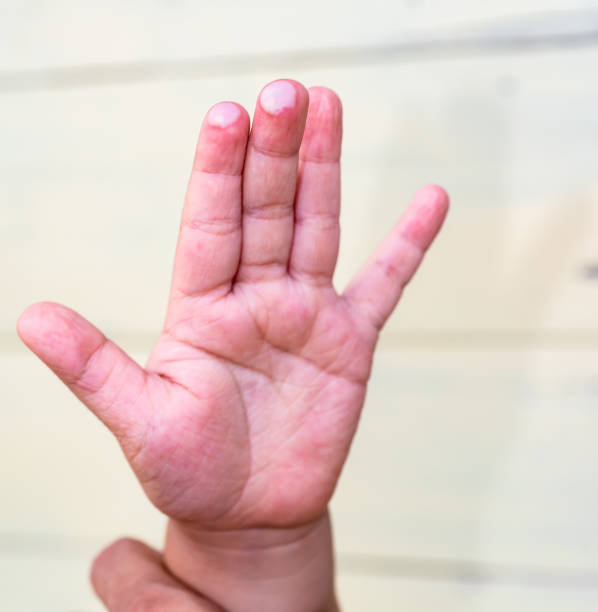
Here are a few things to keep in mind if you want to avoid guitar blisters:
- Take breaks in between your practice routine
- Avoid pushing yourself to the limit
- Don’t use excessive pressure on the strings
- Practice for shorter periods of time and slowly increase your practice time
- Use hand cream after you practice
Take breaks in between your practice routine
Taking breaks in between your practice routine is one of the most important things to keep in mind when you start learning guitar. If you constantly keep practicing you will eventually develop guitar blisters, due to the constant friction of the strings and your soft skin on the fingertips.
For that reason, one of the best ways to avoid guitar blisters is to take breaks.
Avoid pushing yourself to the limit
Some guitar students are relentless and they really wish to learn everything from the getgo. However, this is not always the best approach because it leads you to play for longer hours, and can push your fingers to their limit. Instead try to focus on playing one thing at a time, and try to do things fluidly.
Don’t use excessive pressure on the strings
Another common mistake beginner guitar players make is to use excessive strength when pressing the strings. This is a normal occurrence since you can’t really control the strength of your fingers correctly. However, you should try to press the strings lightly, because if you apply too much pressure it will be easier to develop guitar blisters.
Practice for shorter periods of time and slowly increase your practice time
Something that is important to implement in your practice routine is to start practicing in spans of 10 to 20 minutes initially. As you progress as a player your guitar calluses will form, and you will eventually be able to practice for hours. But remember to start small in the beginning and avoid practicing for hours on end, since it can lead to guitar blisters.
Use hand cream after you practice
Using hand cream when you stop playing is also an important tip to use. The cream allows your skin to restore itself, and it creates a protective layer from the constant friction of pressing the strings.
How do I stop getting blisters on my guitar?
By following the tips we mentioned, such as taking breaks, using hand cream, and pressuring the strings lightly you will eventually stop getting blisters on your fingers. As you become a more experienced guitar player you will also develop guitar calluses that prevent you from having to deal with guitar blisters ever again.
How long do guitar blisters last?
Guitar blisters can last up to a week if you completely stop playing during that period. If you keep on playing then it is possible that you end up with a wound on your fingers, which might even bleed. It can take up to two weeks to fully recover from a wound formed by bursting your guitar blister.
Yu need to understand that your skin needs time to repair itself and to form the calluses that will eventually allow you to play without getting blisters.
How to treat guitar blisters
The best way to treat guitar blisters is to give them time to heal and recover. Essentially, your skin is not used to feeling that level of friction and for that reason, it is hurting you. The first step in treating guitar blisters is to avoid playing and to use hand cream.
By avoiding playing guitar you will be able to give your skin enough time to recover and strengthen. Using the hand cream allows you to restore your skin, and moisturize it, which can help the skin layers recover faster.
Should I pop blisters from playing guitar?
No, you should not pop your guitar blister under any circumstance. This will only be more painful, and it will also take a lot more time for your fingers to heal. You will also be exposing your own flesh to the constant friction the skin, and this can be extremely painful and make you bleed. There is also the possibility of the wound infecting, which could be an even worse situation.
For all the reasons mentioned above, you should never pop a guitar blister.
How long do guitar blisters take to heal?
Guitar blisters typically take around a week to heal but depending on the size of the blister, and the steps you take. If you follow some of the tips we recommend such as stopping playing and using hand cream to heal your skin, it can even take less than a week to completely heal guitar blisters.
However, if you decide to pop the blister, and keep playing it can take up to two weeks to completely recover. This is because it will create a wound, that will be a lot more painful, and it will also require more time for the skin, to completely recover.
Guitar tapping blister
Guitar tapping blisters are also very common especially when you start tapping for the first time. This is because your tapping fingers are not used to pressuring the strings in the same way.
The best way to deal with guitar tapping blisters is to try to press the strings lightly and you might even consider using some adhesive tape, to ensure you can play for longer periods of time.
Thumb guitar blister
A thumb guitar blister is fairly common on guitar players that use fingerpicking. Since your finger is in constant friction with the strings, you can easily develop a thumb guitar blister. This can be avoided by using finger picks, or by placing some adhesive tape on your thumb. You can experiment with both of these solutions to see which one works best for you.
Conclusion
While guitar blisters can be extremely uncomfortable and painful, they are a normal step that every guitar player has to go through. Although it is possible to avoid guitar blisters completely if you give your fingers enough time to rest, and restore the skin tissue.
This way it will take more time to build up your guitar calluses, but it will not be as painful. Learning guitar can be difficult, frustrating, and take a long time, but ultimately you will succeed if you keep practicing.
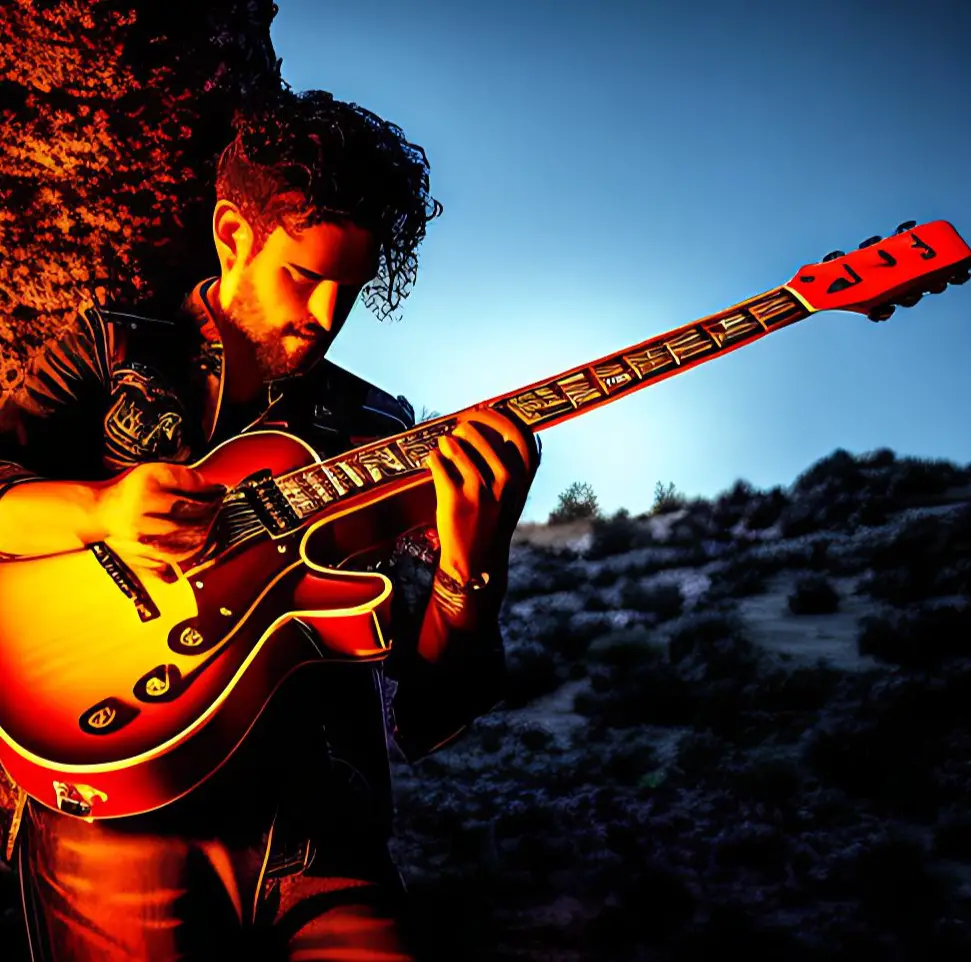
I have been playing guitar for the past 15 years, and my knowledge and passion for guitars prompted me to start Guitaresque to share my knowledge, tips, and tricks with other guitar players. The sole purpose of this website is to help and inspire guitar players worldwide, to improve their playing and their love for guitars.



